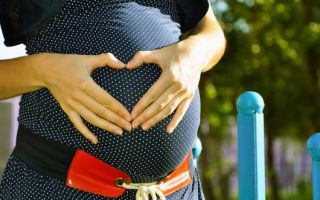Diarrhea (diarrhea) during pregnancy is quite rare.
Content
Causes
Diarrhea can be caused by various diseases and infections. In a number of diseases (ectopic pregnancy, rupture of a corpus luteum cyst), it is a symptom of a serious acute surgical pathology that requires urgent intervention. Other causes are rotavirus infection, food poisoning, worms, food allergies, neurogenic causes, which are described in this article.
Ectopic pregnancy
It develops as a result of improper implantation of the fertilized egg, which occurs not in the uterine cavity in the endometrium, but in the fallopian tubes, between the ligaments supporting the uterus, in the ovary, in the abdominal cavity and other unusual places. As the fertilized egg implants and the chorion grows, an organ that is not adapted to bearing a fetus ruptures, which is a disrupted ectopic pregnancy.
Symptoms of ectopic pregnancy
The characteristic features are
- sharp pain in the lower abdomen,
- delay of menstruation,
- positive pregnancy test,
- spotting bloody discharge from the genitals,
- nausea and diarrhea.
In this case, loose stool in a pregnant woman is one of the symptoms of a serious pathology that requires urgent surgical intervention.
Prevention
To prevent this, it is necessary to be examined by a doctor before planning a pregnancy for sexually transmitted infections, since they are the main cause of this disease.
Corpus luteum cyst rupture
Occurs in early pregnancy. The symptoms are the same as for an ectopic pregnancy.
In this case, the fertilized egg implants in the uterus, and a cyst forms on the ovary from which the egg is released. The place where the egg leaves the ovary is called the “corpus luteum”; this cyst grows on the corpus luteum.
Symptoms
The rift is showing
- sharp pain
- weakness,
- diarrhea (diarrhea).
If all of the above symptoms are present, emergency hospitalization and surgery are necessary.
Rotavirus infection
More often, this infection occurs in children attending preschool institutions. The virus is transmitted by airborne droplets. A distinctive feature of the virus is its easy transmission through contact.
Pregnant women are more likely to become infected from older children attending child care institutions.
The main symptoms are
- high body temperature,
- vomit,
- diarrhea.
Pregnant women with this infection should
- bed rest,
- drinking plenty of water,
- symptomatic antipyretic therapy (paracetamol),
- enterosorbents (smecta, activated carbon).
The danger of rotavirus infection in pregnant women is that it can cause spontaneous miscarriage and premature birth.
You can read more about the disease in the article “ Rotavirus infection ”.
Food poisoning
Food poisoning develops as a result of eating food contaminated with bacteria and the toxins they produce.
The most common pathogens are
- clostridia (Clostridium perfingers),
- Proteus vulgaris,
- Proteus mirabill,
- Klebsiella,
- Entero-bacter.
Most often, this disease is widespread and affects all people who ate food with the pregnant woman.
When poisoning occurs , symptoms as
- increase in body temperature,
- diarrhea,
- vomit,
- weakness.
If a toxic infection occurs, it is necessary to rinse the stomach with a solution of potassium permanganate (potassium permanganate) until the stomach is completely free of poor-quality food. For complete recovery, it is necessary to maintain bed rest and drink plenty of fluids. In case of severe dehydration, intravenous administration of solutions such as Trisol, Acesol may be required.
To neutralize the effects of toxins, it is necessary to use enterosorbents (polyphepan, smecta, activated carbon).
The danger of food poisoning in pregnant women is the same as with rotavirus infection, and lies in the fact that it can cause spontaneous miscarriage and premature birth.
Worms
In addition to small children, infection with worms can occur in adults, including during pregnancy.
Manifested by symptoms such as discomfort and abdominal pain, nausea and diarrhea.
It should be remembered that almost all anthelmintic drugs are very toxic and are strictly contraindicated during pregnancy.
It is necessary to observe measures to prevent re-infection with worms (wash hands, vegetables, fruits) and strictly observe the rules of personal hygiene.
Food allergies
In some cases, food allergies can cause diarrhea in pregnant women and arise from various foods. That is why pregnant women need to be especially careful when introducing new foods into their diet, especially if they have a predisposition to allergies.
In pregnant women, reactions to foods may include nausea, diarrhea and headache.
To treat it, it is enough to exclude the allergen from the menu and start using enterosorbents (polyphepan, smecta, activated carbon) as soon as possible.
Neurogenic causes
Emotions, fears, and worries can contribute to the appearance of diarrhea during pregnancy. Often in pregnant women, this condition is associated with fear of childbirth, changes in their life, and figure.
In this case, pregnant women should be recommended to do yoga and visit the pool. It is necessary to analyze what causes the anxiety and advise in difficult cases to consult a psychologist.







